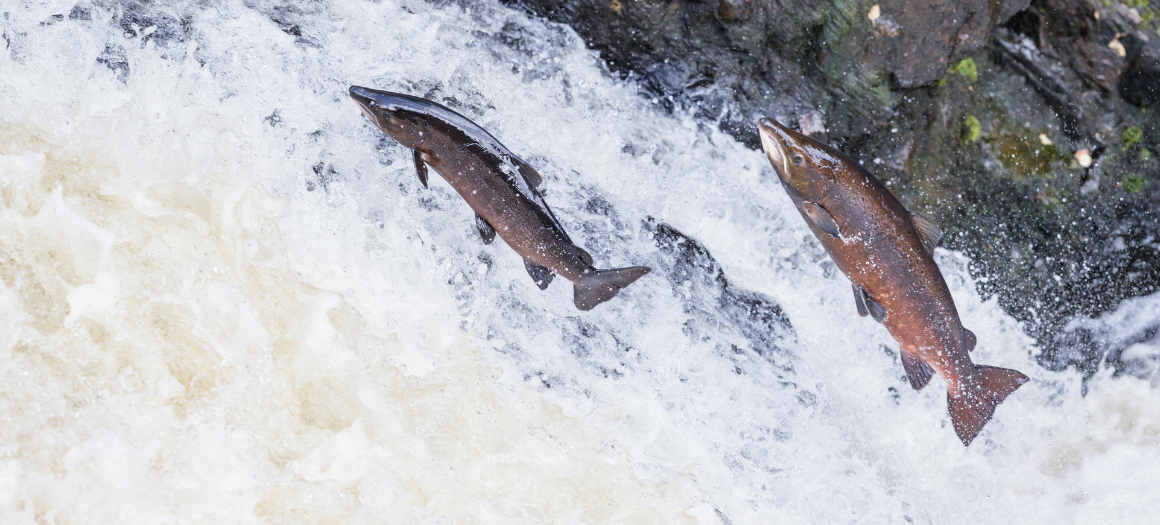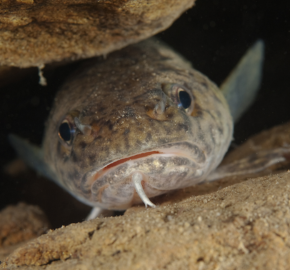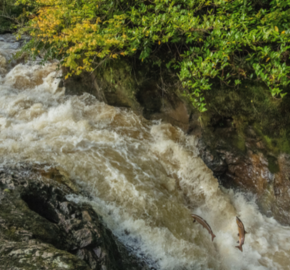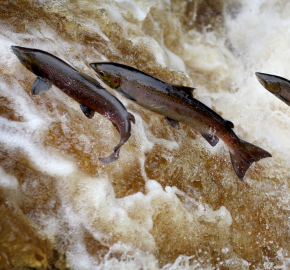Alarm bells continue to ring for wild salmon populations

The release of the 2021 report on the assessment of salmon stocks and fisheries for England and Wales makes for sobering reading. The Environment Agency, CEFAS and Natural Resources Wales note that the rod catch for 2021 of 5,736 is the lowest on record since the time series record started in 1988.
The results showed:
- The 2021 rod catch was 50% lower than the 2020 catch.
- The 1-Sea-Winter grilse catch was 52% below the 5-year mean.
- The Multi-Sea-Winter salmon catch was 54% below the 5-year mean.
The report concluded that there was both a lack of abundance of returning fish and a lack of rain to provide good conditions for migratory fish and fishing.
read the reportWhat the results mean for the future health of salmon
All of this has significant consequences for the future health of salmon stocks. On many rivers there are not enough fish, laying enough eggs to fill the spawning redds.
Put simply, this means that salmon are not returning in great enough numbers to sustain their future populations.
Salmon stocks on the majority of our rivers, are now in crisis.
How salmon populations are measured
On our rivers the sustainability of salmon populations is measured by both the number and the size of the fish. This allows us to determine the contribution the fish makes towards meeting the conservation limit for egg deposition.
A failing freshwater environment
With the significant overall decline in salmon stocks, the 2021 stock assessment shows that 74% of rivers in England, and 91% of rivers in Wales are now in the lowest category for meeting egg deposition targets. This puts them ‘at risk’ of failing to meet their conservation limits.
The salmon stocks in these rivers are deemed unsustainable and every fish caught must now be released to protect future populations.
This very poor situation reflects the significant decline in the status of salmon populations across England and Wales over the last decade. Only one river in England and Wales out of 64 is deemed to be healthy (in the highest category of ‘Not at Risk’). However, even here the 5-year trend in overall fish numbers is currently negative.
It is simply obvious that our rivers and their fish stocks require and indeed deserve massive action to protect them.
“The assessment for England is of great concern and without urgent action wild Atlantic salmon could be lost from our rivers in our lifetimes.”
Kevin Austin
Deputy Director for Agriculture, Fisheries and the Natural Environment at the Environment Agency
Inadequate action is failing wild fish populations
The Environment Agency encourages action with partners on the “Salmon Five-Point Approach”. The project aims to improve marine survival, further reduce exploitation by nets and rods, remove barriers to migration and enhance natural habitat, safeguard sufficient flows, and maximise spawning success by improving water quality.
This plan was brought together following the 2015 England Salmon Summit, when it was clear that our Atlantic salmon populations were under threat.
It is now abundantly clear not enough action has been taken to protect and enhance our rivers and their salmon stocks.
The biodiversity crisis and the climate crisis are interlinked. Both require massive action, immediately, this decade.
Action to protect salmon populations
Atlantic salmon are one of our most iconic species. They are the key indicator for the health of our rivers and seas. And they are clearly telling us that all is not well.
What action do we need to reverse their decline?
Action at sea
Industrial overfishing of all commercial species and damaging trawling, gill netting and dredging must end.
Action on land
Agriculture must rapidly transition to sustainable systems that enhance soil quality. Farming needs a clear plan to change to more appropriate land use and systems, with crops that deliver for biodiversity, for climate and for human health.
Action by water companies
Water companies must clean up their act and invest properly for the future.
To sustain wild fish populations, our rivers must be clean with abundant flows, free of pollution and barriers.
This 1% of precious freshwater is vital to life on earth, we should treasure it along with all the precious biodiversity that it holds.
Which simply means we must now invest urgently in our rivers to protect and enhance Atlantic salmon and indeed all our wild fish, for the benefit of both present and for future generations.



